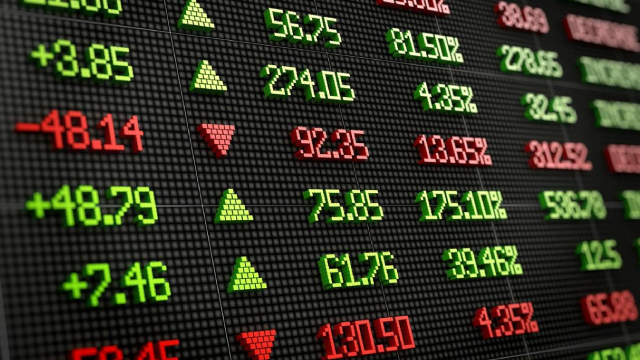A Tale of Two Markets: Hang Seng’s Leap and US Stocks’ Slump
In the ever-evolving world of global finance, two major stock markets have recently made headlines for contrasting reasons. While the Hang Seng Index in Hong Kong experiences a surge fueled by the Chinese economy’s shift towards domestic growth, the US stock markets have been hit hard by tariff fears and weak PMI data.
Hang Seng’s Surge: A Chinese Success Story
The Hang Seng Index, a free float-adjusted market-capitalization index that measures the performance of companies listed on the Stock Exchange of Hong Kong, has seen a significant increase in value. This upward trend can be attributed to several factors, the most notable being China’s commitment to domestic growth.
China’s economic transformation has been a long and arduous process. With its focus on reducing reliance on exports and increasing domestic consumption, the country’s economy has shown remarkable resilience. This shift is evident in the strong performance of Chinese tech giants, such as Tencent and Alibaba, which are major components of the Hang Seng Index.
US Stocks’ Slump: A Perfect Storm of Fears
On the other side of the Pacific, the US stock markets have been hit by a perfect storm of fears. The ongoing trade tensions between the US and China have led to increased tariffs, causing uncertainty for businesses and investors. This uncertainty has been reflected in the stock market, with the Dow Jones Industrial Average and the S&P 500 experiencing significant declines.
Adding to these fears, weak PMI data from the manufacturing sector has raised concerns about the health of the US economy. The Purchasing Managers’ Index (PMI) is an indicator of business activity in the manufacturing sector. A reading below 50 indicates contraction, while a reading above 50 indicates expansion. The latest reading for the US manufacturing PMI was 47.8, the lowest since June 2009.
What Does This Mean for You?
If you’re an investor, these market trends can have a significant impact on your portfolio. The strong performance of Chinese tech stocks in the Hang Seng Index could be an opportunity for growth, while the US stock market’s slump may signal a need for caution. It’s essential to keep a close eye on market trends and economic indicators to make informed investment decisions.
What Does This Mean for the World?
The contrasting performances of the Hang Seng Index and the US stock markets have broader implications. The Chinese economy’s shift towards domestic growth is a sign of its increasing economic power and independence from the global economy. This trend could lead to a more multipolar world, with less reliance on the US-dominated global financial system.
On the other hand, the US stock market’s slump could have negative consequences for the global economy. US businesses and consumers are significant drivers of global growth, and a weak US economy could lead to reduced demand for goods and services from other countries. This could lead to a ripple effect, with other economies experiencing slower growth or even recession.
Conclusion: Two Markets, Two Stories
The contrasting performances of the Hang Seng Index and the US stock markets highlight the complex and ever-changing nature of global finance. While the Chinese economy’s shift towards domestic growth is a positive sign for some, the US stock market’s slump is a cause for concern. As an investor or an observer, it’s essential to stay informed about market trends and economic indicators to navigate this complex world.
- Hang Seng Index experiences a surge fueled by China’s shift towards domestic growth
- US stock markets hit hard by tariff fears and weak PMI data
- Chinese tech giants, such as Tencent and Alibaba, driving growth in Hang Seng Index
- Trade tensions between US and China causing uncertainty for businesses and investors
- Weak US manufacturing PMI reading signals potential economic contraction
- China’s economic transformation leading to a more multipolar world
- US stock market’s slump could have negative consequences for the global economy





